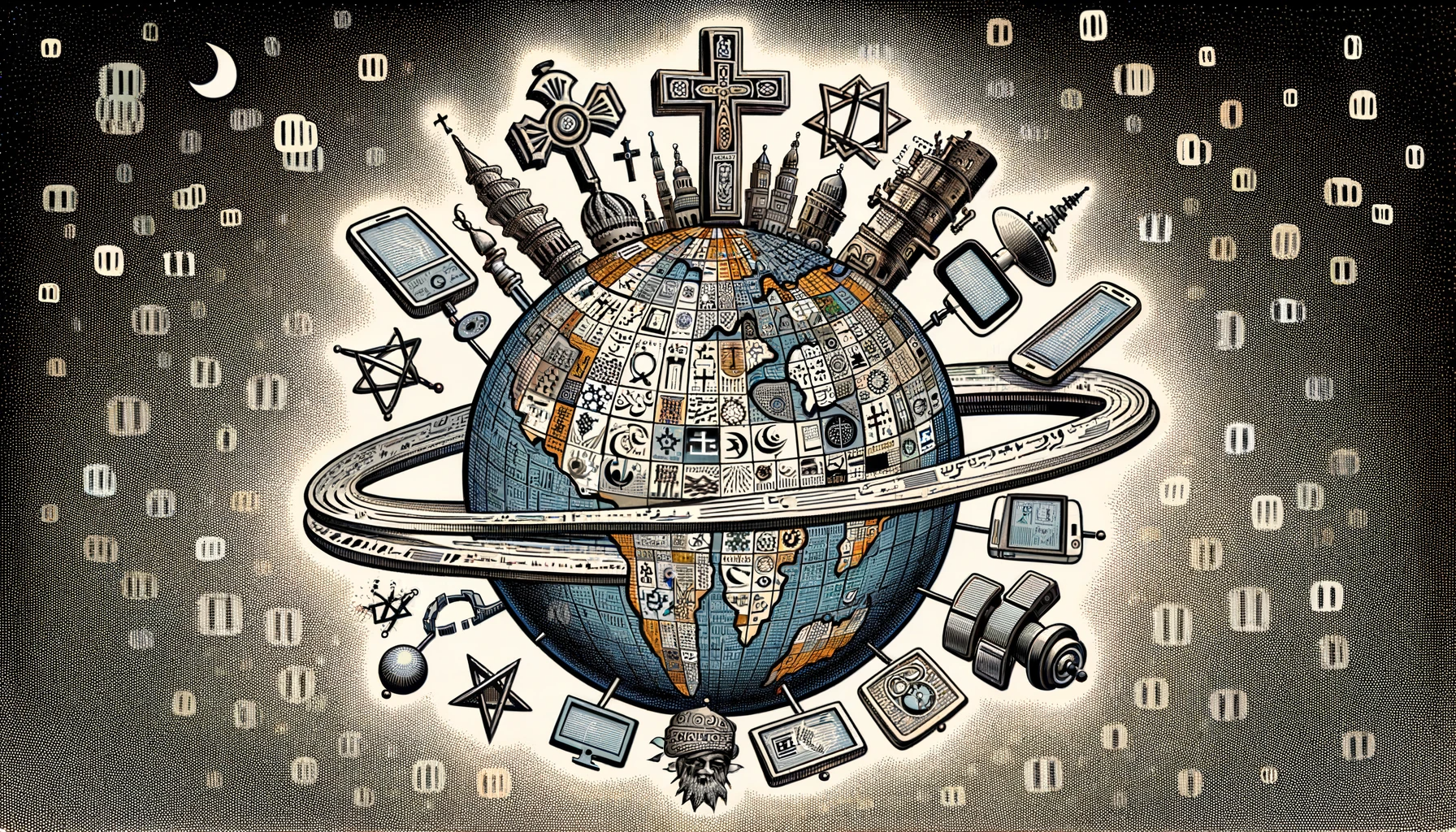Religion, Technology, and Shifting Geopolitical Landscapes
29th January, 2024
In a world of omnipresent smartphones and omnipotent algorithms, the celestial battleground of religion has found new terrain: cyberspace. Deep within this digital dominion, an unprecedented nexus of faith, technology, and geopolitics is reshaping the power matrices of nations and rewriting the playbook of international diplomacy.
The Vatican's savvy digital outreach transcends Catholic congregation, imprinting global moral discourse. Far-right ideologies, once confined to fringe leaflets, burst through cyberspace amplifying exclusionary zealotry—racism, misogyny, and xenophobia. From pastoral tweets to militant manifestos, spiritual summons to firebrand fury, digital conduits channel fervent dogmas and fan explosive radical ideologies.
But the ethereal pixels serve a grander purpose—soft power. States brandish soft power with strategic finesse, fostering alliances that could eclipse traditional strategic dependencies. The Organization of Islamic Cooperation builds a behemoth bloc reshaping geopolitical postures, while digital Hindutva galvanizes local support and international policy in India.
Yet, not all echo chambers beckon radicalization. Gender equality champions, like the Dads for Life movement, leverage digital tools to redraw societal blueprints, championing inclusivity. Meanwhile, China's stringent surveillance marries "Sinicization" with cyberspace moderation, forging a techno-authoritarian model of religio-political harmony that challenges global human rights discourse.
As digital frontiers usher in advanced technologies, religious leadership stands at the crossroads, weighing technological embrace against doctrinal sanctity. Prophecy and policy meld as artificial intelligence and quantum computing await enshrinement into religious endeavors and geopolitical stratagems.
The roadmap to digital religiosity is fraught with potholes and pitfalls, from algorithmic biases to far-ranging disinformation campaigns. Nations grapple with domestic constraints—legal, social, and cultural—that dictate digital religious expression and global perception. The unwieldy variables of human, environmental, and political frictions stir unpredictability into the strategic mix.
In the grand chessboard of international alliances, the choreography between religious synergy and technological prowess provokes disruptive diplomacy while germinating potential for interfaith cooperation. The landscape remains volatile—fertile for peace-building yet susceptible to ideological chasms.
Net Assessment points decision-makers toward the horizons of emerging digital-religious trends, with practical solutions: specialized think tanks to advise against extremism, regulatory frameworks for balanced digital dialogue, and cultural diplomacy via virtual kinship. In the sanctum of servers and sanctuaries, the global community approaches a precipice that dictates not confrontation, but informed, inclusive navigation of a digitally devout world.
In conclusion, the digital embrace transforms global religious dynamics into a nexus that reconfigures geopolitical contours, invoking shared dogmas and virtual identities. This ever-evolving domain requires strategic acumen, where policy-makers fortified with data-driven insight sidestep pitfalls and sail toward a collective future of peace, stability, and co-existence in a cybersphere interwoven with divine narratives.
Click this to explore our findings in the form of a report.
Transform Information Into Strategy
Reach out to discover customized solutions and strategic insights for your business. Contact us below.

